│By Lindsay Whitaker-Guest, Associate Editor, Gale Primary Sources│
This year, the global population of forcibly displaced and stateless people has grown to 130.8 million according to figures released by UNHCR. Existing global conflicts such as the war in Ukraine and the Israel-Gaza conflict, as well as environmental and climate disasters, are all contributing to the increasing numbers of people without homes to call their own.
Sadly, these journeys of displacement are not new. Population displacement is a fact of human history, and scholars and researchers can explore episodes in the twentieth century of refugee crises through primary sources in the latest module of Refugees, Relief and Resettlement. This post explores the primary source collections included in this new module and how editors at Gale Primary Sources approach turning poorly catalogued collections into fully searchable digital archive products.
From the Early Cold War to Decolonisation
Refugees, Relief and Resettlement: The Early Cold War and Decolonization, released in March 2024, explores the period from the early Cold War through the decolonisation of former European colonial possessions. The archive brings together over 400,000 pages of primary source documentation from the U.K. National Archives, Rutgers University Libraries, and New York City Bar Association Library.
The corpus of content gathered for this digital archive provides scholars and students with a broad range of materials dating from 1939 to 1987. Materials cover the many conflicts that precipitated refugee crises. These include the Angolan Civil War, the Hungarian Revolution of 1956, the India-Pakistan partition, the Israeli-Arab Wars, the Indochina Wars, and the Prague Spring of 1968.
Within the archive users will find government correspondence and reports, pamphlets and promotional material from various refugee aid agencies, and selected briefs from the U.S. Federal Appeals Courts. The last is especially notable for the light that these cases shed on America’s Cold War asylum policy and how it impacted defections, deportations, and refugee-related matters.
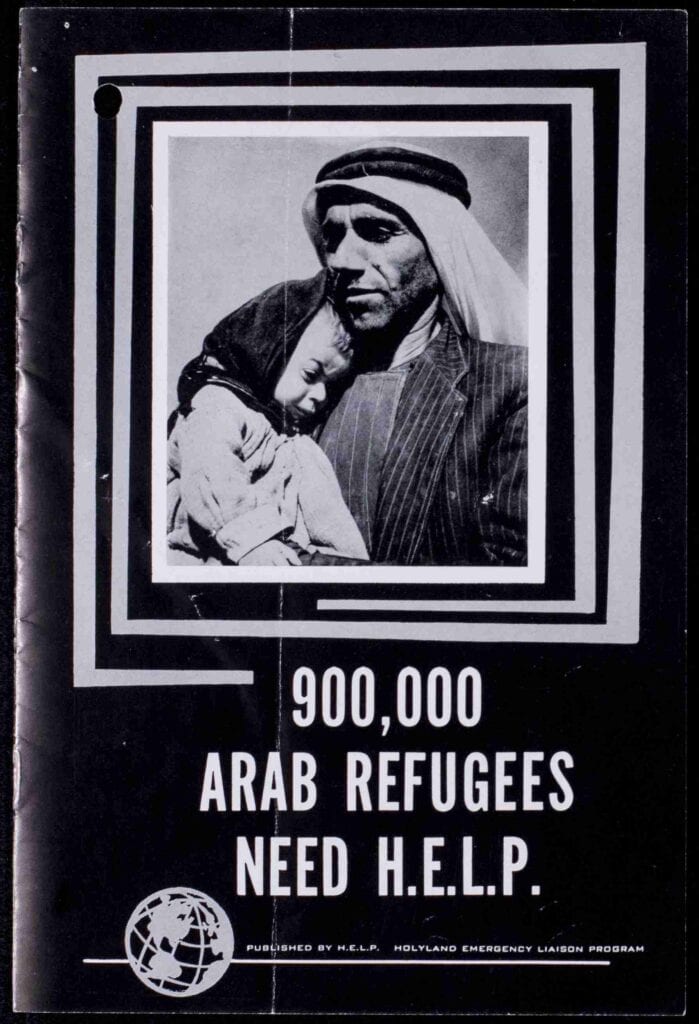
The American Council of Voluntary Agencies for Foreign Service Records (ACVAFS)
Some materials in this collection, particularly government documents from the U.K. National Archives, will be familiar to those scholars well versed in the history of refugeeism. But Refugees, Relief and Resettlement: The Early Cold War and Decolonization breaks new ground by bringing a little known but shockingly important collection to digital light. It does this by including a broad array of documentation from the American Council of Voluntary Agencies for Foreign Service Records (ACVAFS), housed at Rutgers University Libraries in New Jersey.
ACVAFS was founded in 1943 by private service organisation leaders and federal officials as a clearinghouse operation to address the need for a central body to coordinate relief activities between private charities and the United States government. Throughout the 1950s, the ACVAFS worked on projects in partnership with the federal government, such as the mass distribution of surplus foodstuffs under the “Food for Peace” program. Many of ACVAFS’s most influential members were well-known religiously affiliated charities such as Catholic Relief Services, the American Friends Service, and CARE.
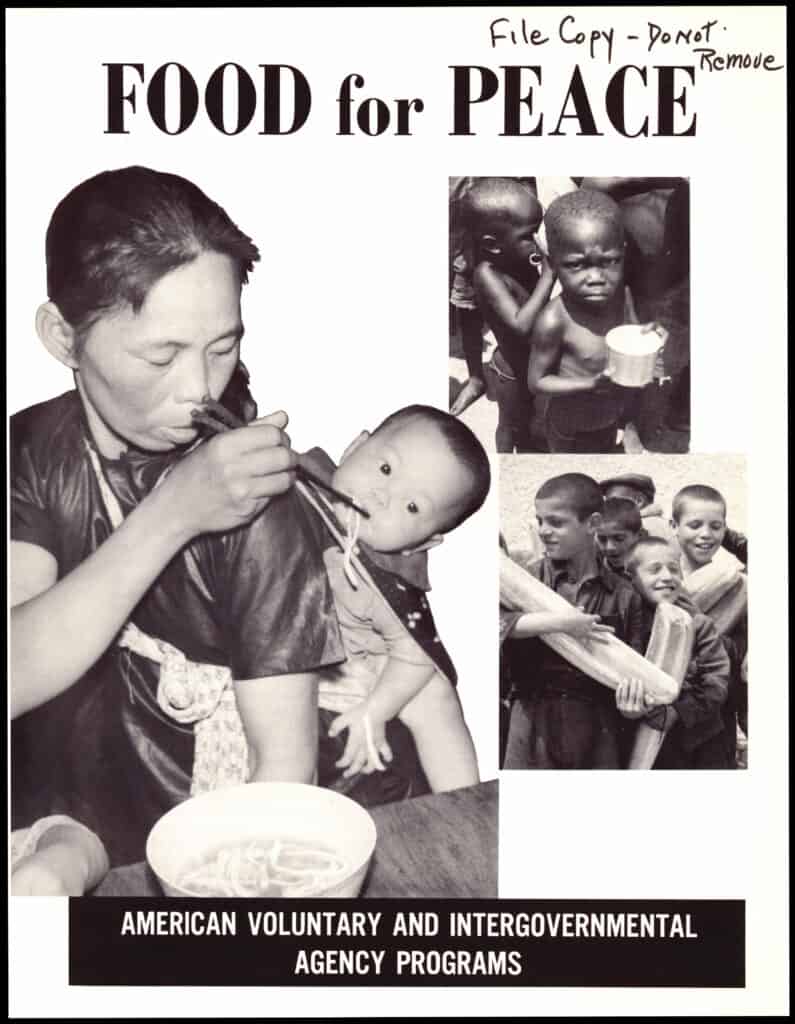
When the post war poverty and hunger crises began to ease, ACVAFS focused more on international development rather than immediate relief activities. During the Cold War years of the 1950s and 1960s, government agencies were keen to work alongside the ACVAFS to enhance America’s image abroad. ACVAFS’s altruism was represented to those it helped as coming directly from the American people. This exercise in soft diplomacy regularly emphasised American generosity, often in countries most at risk of aligning themselves with the Soviet Union.
The ACVAFS collection provides researchers with a broad range of documents from the many relief organisations with which it partnered or that it represented to federal agencies. It also illuminates its modus operandi in working with the federal government during this period of refugee crises and political tensions between the United States and its communist rivals.
The Building Blocks – Finding Aid to Metadata
In contrast to fully catalogued and more easily searchable materials held at the national institutions, Gale will sometimes encounter poorly catalogued collections, requiring additional effort and planning to enable these resources to be accessed by a much wider audience of scholars. Until now, the ACVAFS collection at Rutgers University remained available only to those scholars able to visit Rutgers and sift through the over 160 boxes of materials using a rudimentary finding aid.
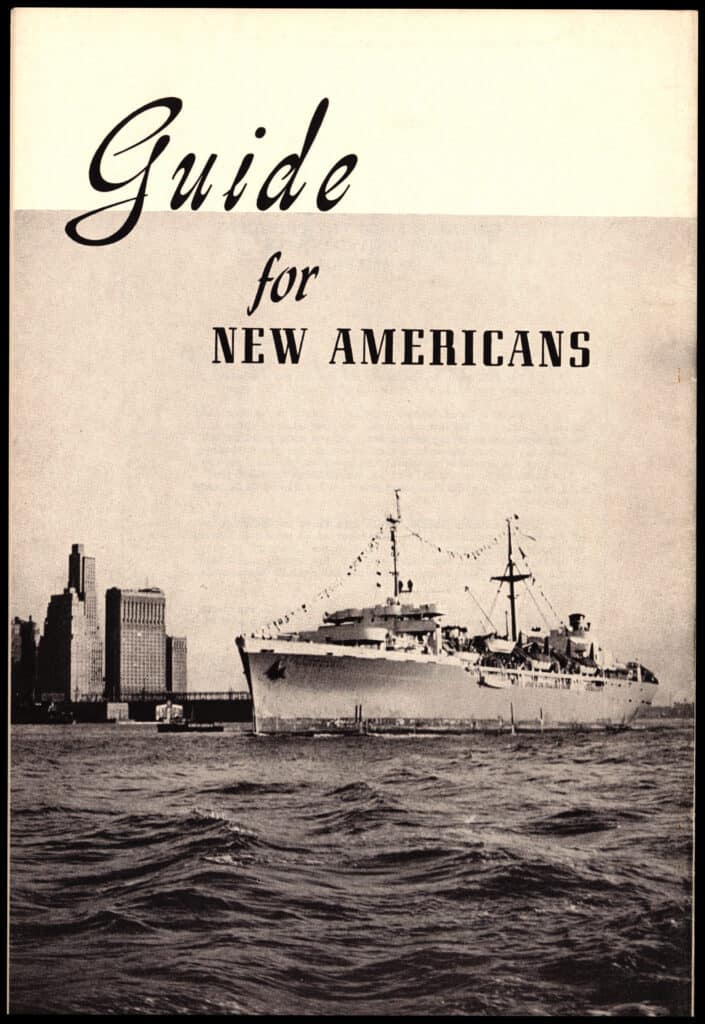
After the collection was selected for inclusion by series editor, Bennett Graff, the task of preparing for digitisation began. Gale cannot digitise an unprocessed collection because the finding aid becomes the basis for our metadata. This enables us to know which image is which document and provides the building blocks for effective searching and browsing of a collection on our digital platform.
The metadata also provides the information for citations, for use when the documents are hopefully cited in fruitful research projects. Without accurate metadata – the document titles, publication dates, and source library – a collection is effectively useless to researchers.
Processing the Collection
In early 2023, over a year before the archive’s publication date, we began the task of preparing the ACVAFS collection for digitisation by hiring two freelance archival processors in New Jersey to organise the collection. This work involved separating out duplicate items, ordering folder contents chronologically, removing fasteners, unfolding papers, and reorientating materials. The documents were then rehoused in archival quality acid-free folders and new boxes.
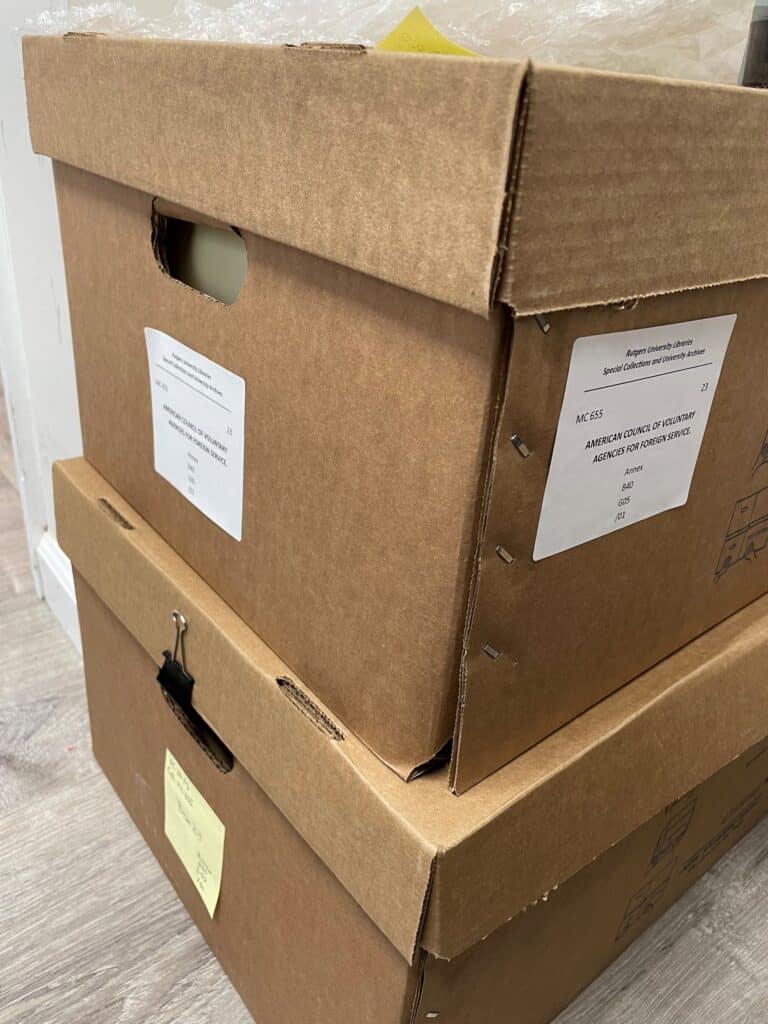
The processors then rebuilt and expanded the original finding aid to our metadata standards as well as adding in geographical tags. Where possible, each folder has the refugee population, place of departure, place of destination, and current location tagged with the country or population name, which can be used to filter search results in product. This work was all completed before the documents had been anywhere near a scanner.
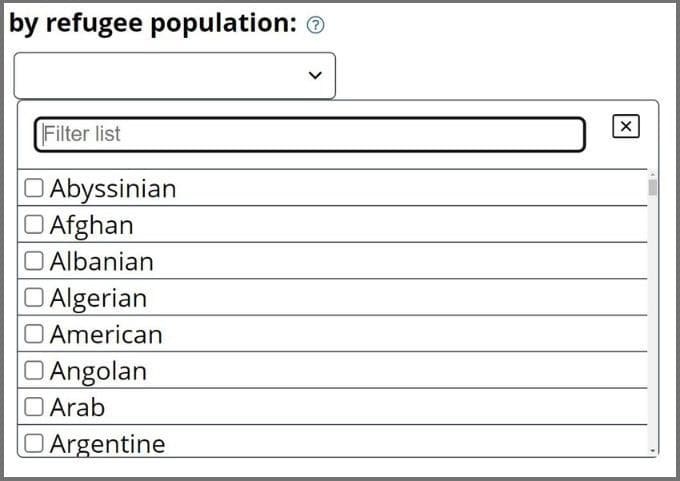
The newly built finding aid has been shared with Rutgers University so those who wish to view the collection in person or access their catalogue online will also benefit from this work. The preventative conservation undertaken by processors on the documents and the rehousing of the materials in new folders and boxes will help preserve the material for future researchers, preventing deterioration caused by inappropriate storage materials.
The Final Product
Hopefully this post has given readers an insight not only into Gale’s exciting new release Refugees, Relief and Resettlement: The Early Cold War and Decolonization, but also into how we prepare materials for digitisation for the benefit of Gale users, researchers, and source libraries alike.
If you enjoyed reading about Refugees, Relief and Resettlement: The Early Cold War and Decolonization check out these posts:
- Building a Digital Archive: The Role of Relevance and Research Trends in ‘Refugees, Relief and Resettlement’
- Building a Digital Archive: The Role of Privacy and Content Breadth in ‘Refugees, Relief and Resettlement’
- Humanity and Courage: Refugees and the Memory of those who saved them
Blog post cover image citation:
United Nations Relief and Rehabilitation Administration (UNRRA): Pamphlets Regarding UNRRA. November 1, 1945 March, 1946. MS Selected Records of the American Council of Voluntary Agencies for Foreign Service, 1942-1987: United Nations 57.21. Rutgers University Libraries, Manuscripts and Archives. Refugees, Relief, and Resettlement https://link.gale.com/apps/doc/JTIERE244382383/RRRW?u=webdemo&sid=bookmark-RRRW&xid=721530ca&pg=8

